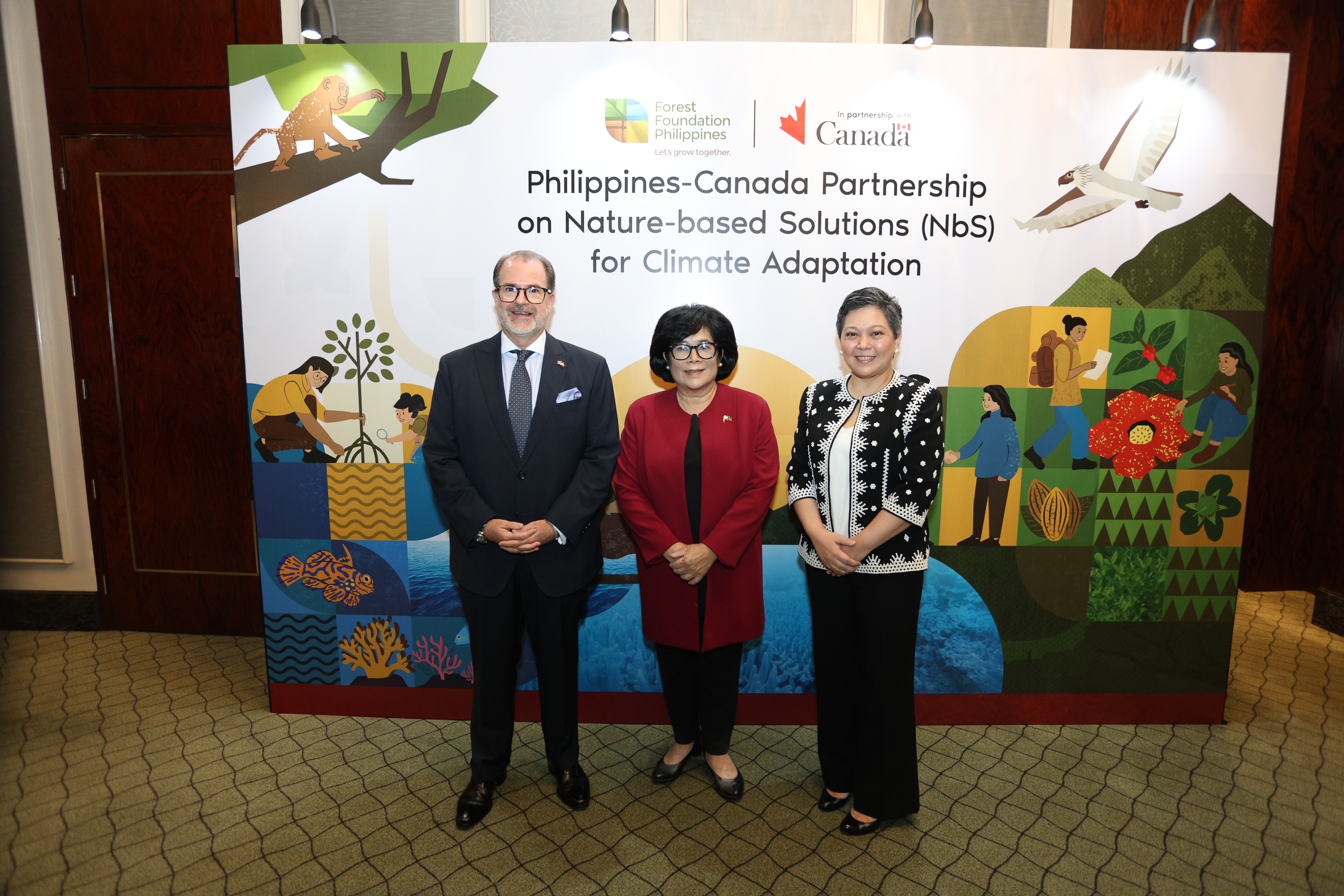Climate change is the main concern everywhere and now we experience flooding, extreme heat and other environmental phenomenon. With the DENR – Department of Environment and Natural Resources, Forest Foundation Philippines and Canadian Embassy in partnership to promote healthy ecosystems within the country.
Philippines and Canada unveiled a new climate change adaptation program that leverages nature to minimize climate impacts. The Philippines-Canada Partnership on Nature-based Solutions (NbS) for Climate Adaptation (PCP4NbS), an initiative led by Forest Foundation Philippines in partnership with the Embassy of Canada, seeks to enhance the climate resilience of communities, empower women, and ensure that the strategies implemented benefit natural resources and promote healthy ecosystems.

PCP4NbS will pilot good practices on nature-based solutions (NbS) in the Philippines by improving the knowledge base for evidence-based decision making, creating platforms for learning exchange and capacity enhancement, and conducting research on the nexus between biodiversity, gender, and climate adaptation. The program will also develop learning modules and implement gender-responsive, community-based NbS, and co- create policy recommendations to mainstream NbS for climate adaptation. These solutions not only address climate challenges but also provide valuable ecological
services.
NbS are cost-effective actions that protect, regenerate and enhance ecosystems while responding to the needs of the community and safeguarding biodiversity. The four-year program aims to utilize these solutions by collaborating with communities, civil society, government agencies, private sector, and other stakeholders. This will involve jointly identifying and implementing innovative NbS initiatives tailored to address environmental and social challenges of climate-vulnerable communities in both terrestrial and coastal areas. Implementation will be supported by a robust monitoring and evaluation framework to ensure that resources will be maximized towards achieving the program’s goal.

“PCP4NbS offers a chance to recommit ourselves to science, community involvement, and inclusivity in decision-making. Protecting individuals, communities, and biodiversity is at the heart of NbS,” said Edwina Garchitorena, Chairperson of the Board of Trustees of Forest Foundation Philippines.
“This partnership, in championing solutions designed by and for local communities, will make a lasting contribution to the health of ecosystems and livelihoods in areas of high biodiversity in the Philippines,” emphasized David Hartman, Ambassador of Canada to the Philippines.
The Government of Canada has committed PhP 332 million (CA$8 million) for program implementation. This fund will be managed by Forest Foundation Philippines, which will support local organizations in implementing holistic, community-based, and gender-responsive initiatives based on NbS principles. Pilot projects will be implemented in Batanes, Camarines Sur, Davao Oriental, Davao de Oro, Negros Occidental, Negros Oriental, and the Calamianes group of islands in Palawan. Interventions in other areas
that demonstrate NbS for adaptation can also be supported through thematic grants.
Environment Secretary Maria Antonia Yulo-Loyzaga recognized the immense potential of NbS. “Our ecosystem from ridge to reef should be conserved and protected as they are our life support system. Through this program, we expect to craft better policies that will institutionalize the use of nature-based solutions to help build resilience while nurturing our ecosystems and creating sustainable livelihoods,” she said.
Central to the partnership is the empowerment of local communities, particularly rural and indigenous women, in climate resilience efforts. By providing training and capacity-building, the initiative seeks to foster inclusive development and empower marginalized groups to actively participate in climate adaptation initiatives.
The program also identifies economic opportunities and livelihoods in areas such as agroforestry, watershed management, and eco-tourism, showcasing the potential for sustainable development while conserving natural resources.
“With our overarching goal to sustain ecosystem services and enhance forest-related climate action, this program is a reflection of our commitment to the continued protection, restoration, and conservation of our forests and coastal areas, for water, land productivity, and biodiversity,” concluded Atty. Jose Andres Canivel, Executive Director of Forest Foundation Philippines.





No Comments Yet